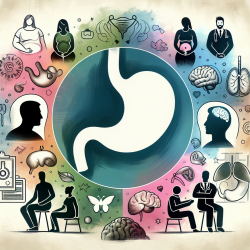The landscape of spiritual care within healthcare settings is evolving rapidly. As practitioners, we must adapt to these changes by expanding our roles and understanding the complex interplay between spirituality, law, and cultural competence. The research article "Conclusions and Recommendations" offers valuable insights into how we can improve our skills by embracing interfaith dialogue and becoming literate in religious freedom laws.
The Importance of Interfaith Dialogue
In today's diverse healthcare environments, interfaith dialogue is crucial for providing comprehensive spiritual care. The article highlights the collaboration between Buddhist and Christian practitioners in Clinical Pastoral Education (CPE) settings. This collaboration fosters a shared understanding of personal transformation and selfless service, which are essential for supporting patients from various backgrounds.
Buddhist-Christian dialogue can offer unique practices such as Lady Mahamaya-inspired visualization techniques that promote empathy and understanding. These practices encourage spiritual caregivers to transcend binary gender constructs and embrace a more inclusive approach to care.
Legal Literacy in Religious Freedom
The political context surrounding religious freedom laws poses challenges for healthcare providers, particularly when it comes to serving transgender patients. The article emphasizes the need for chaplains and spiritual caregivers to become literate in these laws to effectively advocate for responsible religious freedom practices.
By understanding the nuances of religious freedom legislation, practitioners can protect themselves, their colleagues, and their patients from discrimination. This knowledge empowers them to challenge oppressive systems and advocate for a more inclusive healthcare environment.
Implementing Best Practices for Transgender Care
Nate Metrick and Jake Bradley of Elements Consulting have developed "Special Considerations for Pastoral Care in Health Care Settings," which provides practical guidelines for supporting transgender patients. Key recommendations include:
- Avoid asking about a person's body or medical history related to gender.
- Use gender-neutral language when referring to body parts.
- Respect a person's privacy and modesty needs.
- Ensure access to appearance-related items like wigs and prosthetics.
- Be aware of faith communities that are affirming and safe.
These best practices help create a safe and welcoming environment for transgender individuals, allowing them to receive the compassionate care they deserve.
The Role of Mindfulness in Spiritual Care
The cultivation of mindfulness through gathas—short verses used in daily activities—can transform biases and prejudices. Thich Nhat Hanh's teachings inspire spiritual caregivers to practice mindfulness in their interactions with patients, promoting empathy and compassion.
Practicing gathas tailored to the needs of hospitalized transgender patients can foster a deeper connection between caregivers and patients. This practice encourages caregivers to be present, listen deeply, and respond with compassion.
Advocating for Change
The article calls on chaplains to become public practical theologians who advocate for freedom from tyranny. By becoming literate in religious freedom laws and engaging in political processes, spiritual caregivers can support the transgender community more effectively.
This advocacy involves reimagining traditional narratives like the Parable of the Good Samaritan to emphasize collective survival and mutual support. By embodying hospitality and empathy, chaplains can transform hospital culture from within.
Conclusion
As spiritual care practitioners, we have a responsibility to enhance our skills through interfaith dialogue and legal literacy. By implementing the recommendations from "Conclusions and Recommendations," we can create a more inclusive healthcare environment that respects the dignity of all individuals.
To read the original research paper, please follow this Conclusions and Recommendations.










